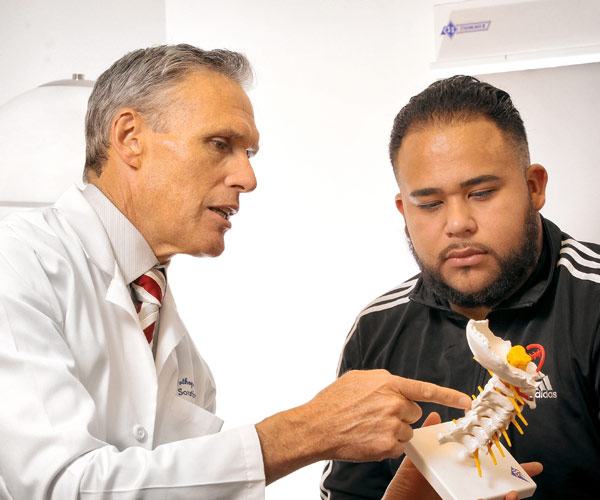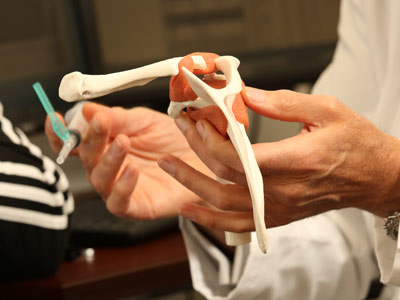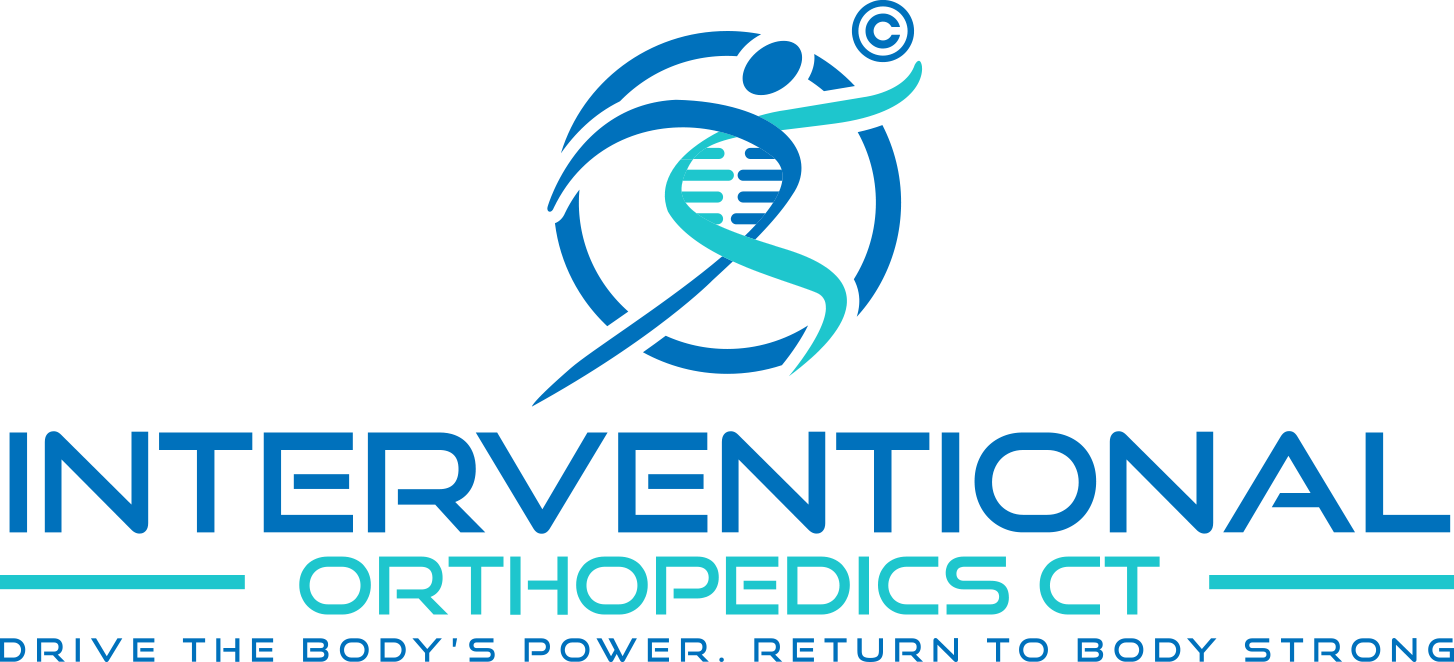Herniated Slipped Discs
 About Herniated Discs
About Herniated Discs
A herniated disc is often called a “slipped disc” or a “ruptured disc”. Most often a herniated disc occurs in your lower back. A herniated disc is one of the most common causes of leg pain or “sciatica.” Risks for disc herniation include work that requires a great deal of lifting and twisting, participation in repetitive physically demanding activities that strain the spine by pulling, bending and twisting a great deal, living a relatively sedentary lifestyle, and prolonged sitting. A herniated disc can be quite painful. However, in most instances people do feel better after several weeks or months of conservative nonsurgical treatment.
Symptoms of Herniated Discs
A herniated disc is often called a “slipped disc” or a “ruptured disc”. Most often a herniated disc occurs in your lower back. A herniated disc is one of the most common causes of leg pain or “sciatica.” Risks for disc herniation include work that requires a great deal of lifting and twisting, participation in repetitive physically demanding activities that strain the spine by pulling, bending and twisting a great deal, living a relatively sedentary lifestyle, and prolonged sitting. A herniated disc can be quite painful. However, in most instances people do feel better after several weeks or months of conservative nonsurgical treatment.
Causes of Herniated Discs
A herniated disk is most commonly the result of repeated minor injury to a disc causing tears in the cartilage of the disc that weaken its structure and increase the risk of herniation. The ‘final straw’ that causes the disc to herniate can be a simple unnoticed motion or, more commonly, prolonged load on the disc when sitting usually in long car or plane rides. A herniated disc might also result from physical trauma such as from an accident, fall or high impact contact.
Non Surgical Treatment for Herniated Discs
For the majority of people a herniated disc will slowly improve over the course of weeks or months with most symptoms becoming lessened or absent after 3-4 months. It is not uncommon to have mild, moderate or even severe pain during this period. The main goal of non surgical treatment is to provide pain relief. Typical non surgical treatment for herniated discs include activity and movement changes aimed at avoiding further loading of the disc such as prolonged sitting, repetitive bending, or any lifting more than a pair of heavy work boots. Oral anti-inflammatory medications and physical therapy to strengthen your back may also be helpful. Epidural steroid injections are especially helpful for associated leg and arm pain.
To learn more and get help for herniated discs please Schedule an Appointment with Regenerative Orthopedic & Sports Medicine Specialist Daniel Southern, M.D. in Danbury or Wilton in Fairfield County Connecticut by calling 203-456-5717.


Surgical Treatment for Herniated Discs
Surgery for a herniated disc is reserved for the small percentage of patients who have uncontrollable arm and leg pain and/or weakness. Microdiskectomy, to remove the herniated part of the disc and any fragments putting pressure on a spinal nerve, is the most common surgical procedure for a herniated disk. It is generally very successful at relieving arm and leg pain. Sometimes, recovery time and rehabilitation for a herniated disc can be somewhat lengthy and uncomfortable requiring careful pain management.
To learn more and get help for herniated discs please Schedule an Appointment with Regenerative Orthopedic & Sports Medicine Specialist Daniel Southern, M.D. in Danbury or Wilton in Fairfield County Connecticut by calling 203-456-5717.
Regenerative Orthopedic Medicine Treatment for Herniated Discs
Regenerative procedures provide non-surgical treatment options for those suffering from pain related to osteoarthritis, joint injuries, spine pain, overuse conditions, and common sports injuries. These medical procedures are performed by highly-skilled doctors and are used to help reduce pain and improve function. They may help improve your quality of life, return to the activities you enjoy, and avoid the need for surgery or joint replacement*.
*DISCLAIMER: Like all medical procedures, regenerative procedures have a success and failure rate. Patient reviews and testimonials on this site should not be interpreted as a statement on the effectiveness of our treatments for anyone else.

